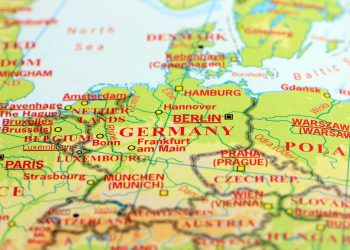German Transport Minister Volker Wissing visited the Port of Rotterdam during a three-day delegation trip to the Netherlands. Mr. Wissing and Emile Hoogsteden, Vice President of the Port of Rotterdam Authority, highlighted the importance of the Rhine Corridor and its ports for the transport of goods to Rhineland-Palatinate and Europe.
The freight corridor from Rotterdam to Genoa is one of the most important European logistics axes and is also significant for the transport of goods to and from Rhineland-Palatinate. The Port of Rotterdam, the State of Rhineland-Palatinate and its port operations have been collaborating to improve hinterland transport from the Port of Rotterdam.
Commenting on the occasion, Transport Minister Wissing and Port Vice President Hoogsteden, said that with the expansion of Europe’s largest seaport and the doubling of container throughput, the capacity of hinterland transport must also be increased.
[smlsubform prepend=”GET THE SAFETY4SEA IN YOUR INBOX!” showname=false emailtxt=”” emailholder=”Enter your email address” showsubmit=true submittxt=”Submit” jsthanks=false thankyou=”Thank you for subscribing to our mailing list”]
The both added that in order to ensure supply for the population and companies along the Rhine, there is a need for an efficient waterway and greater speed in conducting transport projects throughout the Rhine corridor.
The low water levels of 2018 have revealed the urgent need to expand the role of the Rhine as the central European transport and logistics axis. It is therefore important that the German federal government quickly implement the project to optimise unloading along the Middle Rhine (Abladeoptimierung am Mittelrhein)
Mr. Wissing mentioned.
In addition, German Transport Minister Andreas Scheuer included this unloading optimisation project in the Master Plan for Inland Navigation suggested in May 2019, and announced the hiring of new personnel for expansion and planning.
Finally, another important factor is to upgrade rail infrastructure. According to Hoogsteden, this does not only concern the construction of an alternative route to the Middle Rhine Valley but also the extension of the Betuwe line between Oberhausen and Emmerich in North Rhine-Westphalia.






























































